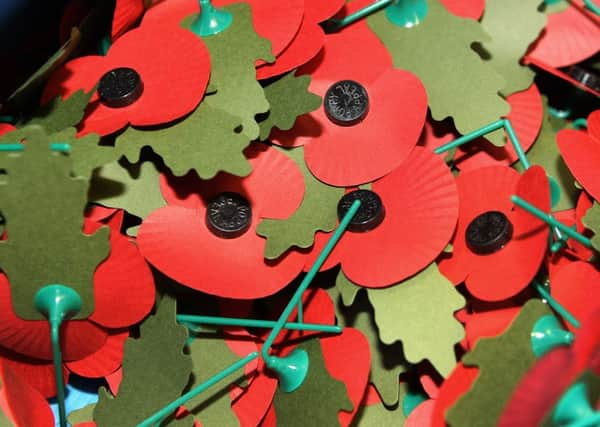Why do we remember nation’s fallen, ask Hull academics


But this weekend, university researchers will be asking those taking part at a Remembrance Sunday service in East Yorkshire to reflect more deeply on how and why they continue to commemorate the nation’s fallen.
The survey carried out by academics from the University of Hull at Beverley Minster will help inform a case study called ‘Heroes and Loved Ones’ looking at the way the deaths of serving soldiers have been publicly marked and commemorated in modern history up to the present.
Advertisement
Hide AdAdvertisement
Hide AdResearchers will examine how public ceremonies such as remembrance services relate to the private experiences and feelings of bereaved families and the comrades of fallen servicemen and women.
The study is part of a wider £850,000 research programme ‘Remember Me – the changing face of memorialisation’ into the rituals and memorials surrounding death and dying, looking at behaviour from the dawn of human history to the age of social media.
Officials say the 30-month project, funded by the Arts and Humanities Research Council, will “draw on a wide range of research methods and materials to explore the changing face of mourning in Britain”.
Professor Margaret Holloway of the University of Hull’s School of Social Sciences, said it was the first systematic attempt to study new types of mourning ritual.
Advertisement
Hide AdAdvertisement
Hide Ad“Despite all the innovations in funeral rites, there is still clearly a fundamental human need for meaning but, as yet, little to guide mourners, or those professionals and community representatives supporting them. Hopefully, our analysis will change that.”
Prof Holloway said the way people remember the passing of loved ones was going through a period of rapid and radical change, due to innovations such as internet memorial sites.
She said: “Whereas in the past, people would have drawn meaning and comfort from traditional religious rites, modern responses to death are becoming much more personal and secular.
“This is creating a lot of confusion and conflict, as people try to make sense of these new ceremonies and rituals. Our wide-ranging study will survey the full breadth of these changing practices and, for the first time, place them in an historical context.”
Advertisement
Hide AdAdvertisement
Hide AdA project advisory group includes representatives from the funeral services sector and the study will share its findings with people working in ‘end of life’ care, such as hospices.
Services around the region will mark the national day of remembrance on Sunday.
In Sheffield, the city’s Lord Mayor will lead a procession from the City Hall to Barkers Pool at 10.50am prior to the service. The ceremony will begin with the Exhortation read by Captain Robert EJ Crothers of the 212 (Yorkshire) Field Hospital.
In Leeds, a procession will leave Leeds Civic Hall at 10.50am and finish at Victoria Gardens in the city centre, where wreaths will then be laid. People can support the Royal British Legion by buying a poppy or visiting www.britishlegion.org.uk.